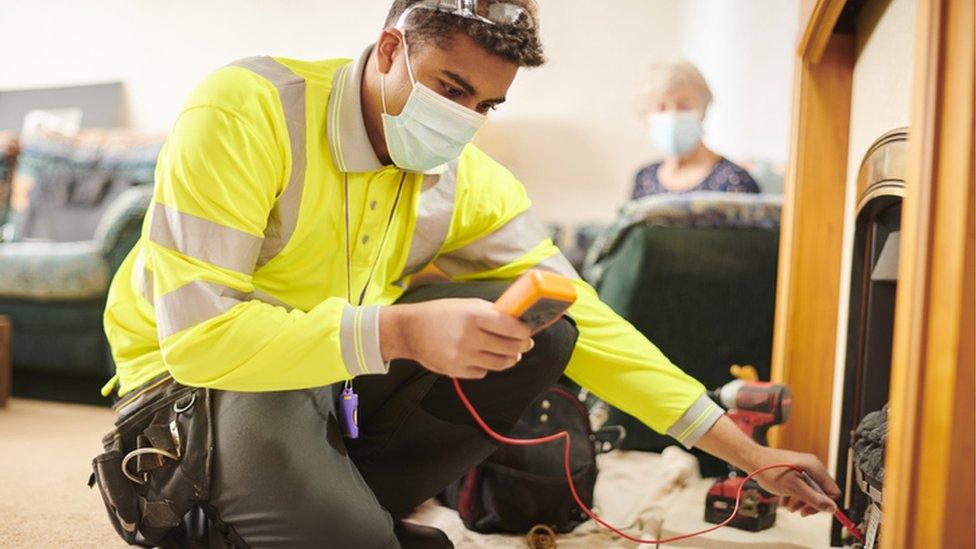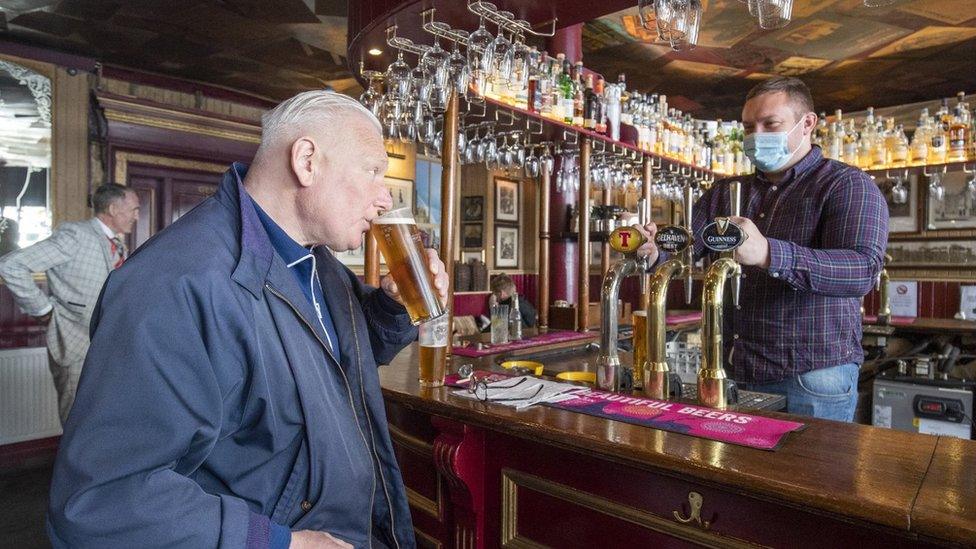RBS report: Starting pay up sharply as staff supply falls
- Published

Starting salaries continued to rise sharply at Scottish firms last month as the supply of job candidates in some sectors fell away, a survey has found.
The latest RBS Report on Jobs said recruiters noted candidate shortages for both permanent and temporary posts.
The lack of supply was attributed by some respondents to "a reluctance among candidates to switch roles due to Covid-19 related uncertainty".
Brexit and off-payroll working tax rules were also cited for the shortage.
For permanent positions, the rate of decline in supply was the fastest since March 2019, while firms signalled the steepest downturn in temp staff supply in the survey's history.
The shortage came as hiring activity at Scottish businesses surged again last month, in line with easing Covid-19 restrictions and rising economic activity.
An upturn in permanent placements was slower than in May but was still rapid overall, while temp billings growth also remained historically elevated.

Panellists in the survey suggested the shortage of candidates for permanent roles had "placed upwards pressure" on pay, with the rate of increase among the steepest on record.
Recruiters across Scotland also recorded a further increase in average hourly wages for short-term staff during June.
Temp wages have now risen in all but one of the past nine months.
Demand for permanent staff across Scotland rose sharply again during June, with the fastest rise since data collection began in January 2003.
Across the monitored sectors, IT and computing registered the quickest increase in vacancies, followed by engineering and construction.
'Sustained rebound'
Recruiters across Scotland also registered a further rise in the number of temporary vacancies during June. Blue collar posts saw the strongest rise in the number of temp vacancies, followed by IT and computing.
RBS chief economist Sebastian Burnside said the June data pointed to a "sustained rebound" of the Scottish jobs market.
Earlier this week, a Scottish Chambers of Commerce survey suggested Scottish businesses were seeing "shoots of recovery" for the first time in over a year as Covid-19 restrictions began to lift.
Its latest quarterly economic indicator indicated more positive growth across all sectors, with firms reporting substantial rises in confidence and domestic sales.
However, while companies were optimistic about sales revenue in the third quarter of this year, they are more cautious around investment and staff levels.
They also expressed greater concern over inflation, as more consumers spend savings accumulated over the last 16 months.
SCC president Tim Allan said: "The success of the vaccine rollout has enabled the easing of restrictions and the gradual reopening of the economy, unleashing pent-up demand in the economy.
"This has allowed some sectors to rebound more quickly than others.
"However, the route to economic recovery will be a marathon, not a sprint."


- Published1 July 2021

- Published16 June 2021

- Published6 May 2021
